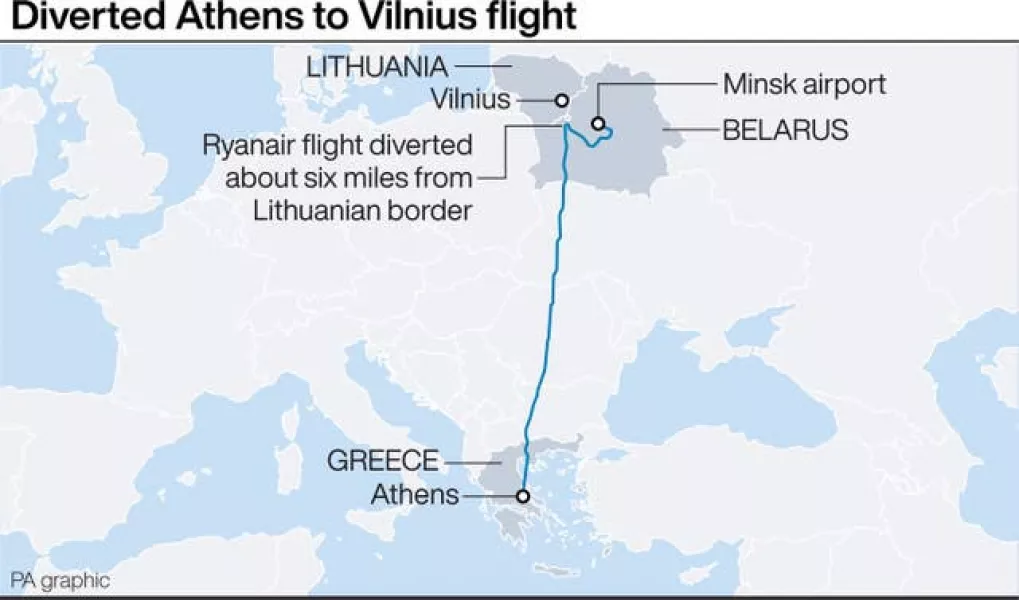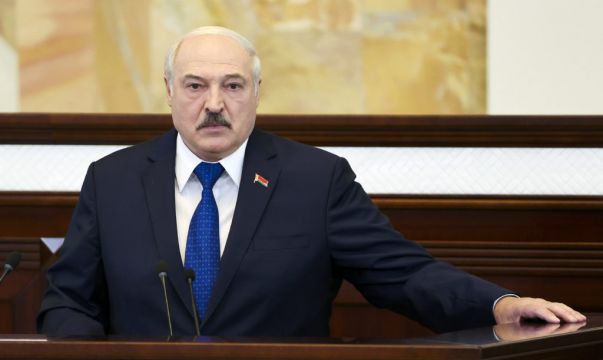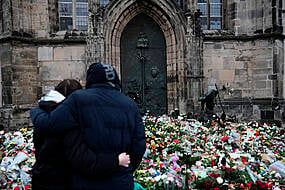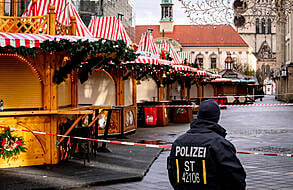Belarus’s authoritarian leader is discussing closer economic ties with Russia as he seeks support from his main backer amid a bruising showdown with the European Union over the forced diversion of a passenger jet to arrest a dissident journalist.
President Alexander Lukashenko has found himself increasingly isolated after Belarusian flight controllers told the crew of a Ryanair plane to land because there was a bomb threat against it.
No bomb was found once the place was on the ground, but 26-year-old journalist Roman Protasevich was arrested along with his Russian girlfriend.
EU leaders denounced it as a hijacking and responded by barring Belarusian carriers from the bloc’s air space and airports and advising European airlines to skirt Belarus.
The bloc’s foreign ministers sketched out tougher sanctions on Thursday to target the country’s lucrative potash industry and other sectors that are the main cash earners for Mr Lukashenko’s government.
The dispute has pushed the president, who has relentlessly stifled dissent during his rule of more than a quarter of a century, even closer to Russian President Vladimir Putin, and the two will meet in the Black Sea resort of Sochi for talks on closer economic ties, according to the Kremlin.
“The events of the last days show a growing Western pressure on Belarus,” Belarusian prime minister Roman Golovchenko said earlier.
“The EU has made a political decision to introduce sectoral sanctions in an apparent attempt to ruin our economy and create conditions for the repeat of coup attempts. In this situation, we count on the support of our closest ally, the Russian Federation.”

The two ex-Soviet nations have signed a union agreement that calls for close political, economic and military ties, but stops short of a full merger.
Moscow has helped buttress Belarus’s economy with cheap energy supplies and loans, but the ties have often been strained with Mr Lukashenko criticising Moscow for trying to force him to relinquish control over economic assets and eventually abandon Belarusian independence.
In the past, the 66-year-old Belarusian leader has tried to play the West against Russia, raising the prospect of a rapprochement with the EU and the US to wring more aid out of Moscow.
Such tactics no longer work after his brutal crackdown on protests last autumn after a vote that handed him a sixth term but the opposition said was rigged.
More than 35,000 people were arrested amid the protests and thousands beaten — moves that made him a pariah in the West. The flight’s diversion has now cornered the Belarusian strongman even more.

On Friday, the European Commission presented a 3 billion-euro (£2.6 billion) aid plan to support “a future democratic Belarus” that could be activated if the country moves towards a “democratic transition”.
“To the people of Belarus: We see and hear your desire for change, for democracy, and for a bright future,” said Ursula von der Leyen, the commission’s president. “And to the Belarusian authorities: no amount of repression, brutality or coercion will bring any legitimacy to your authoritarian regime.”
Moscow has already offered Mr Lukashenko quick political support over the plane’s diversion, warning the EU against hasty action until the episode is properly investigated and arguing that Mr Lukashenko’s actions were in line with international protocols in cases of bomb threats.
The International Civil Aviation Organisation said on Thursday that it will investigate the diversion, as many Western countries have asked for.







